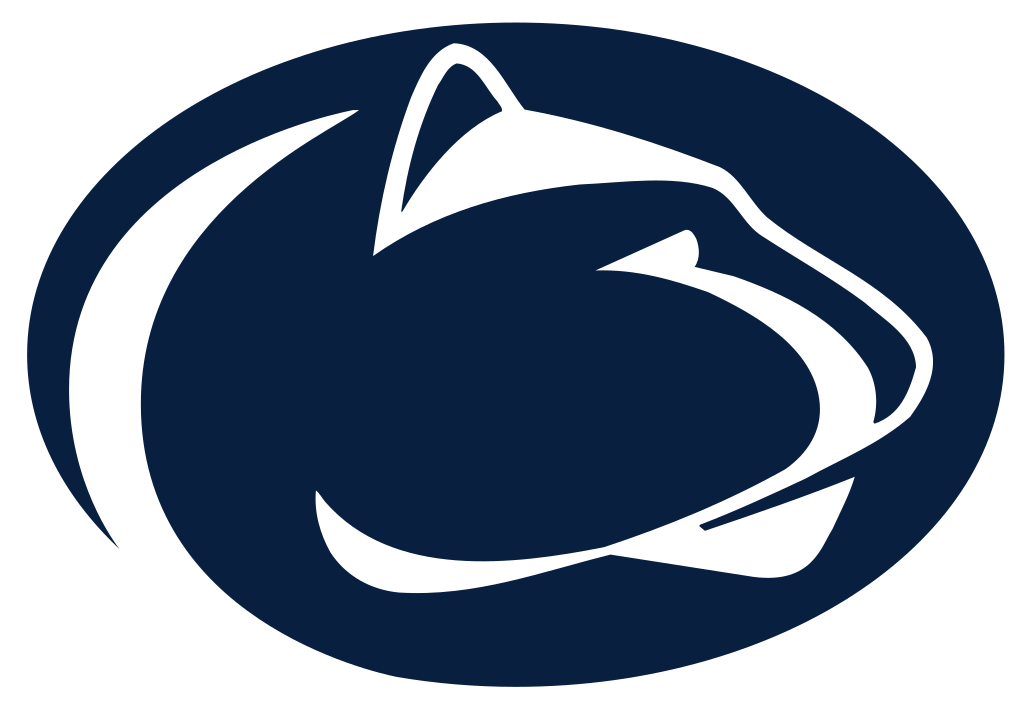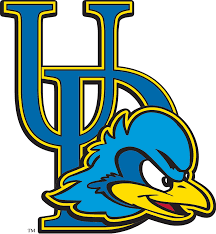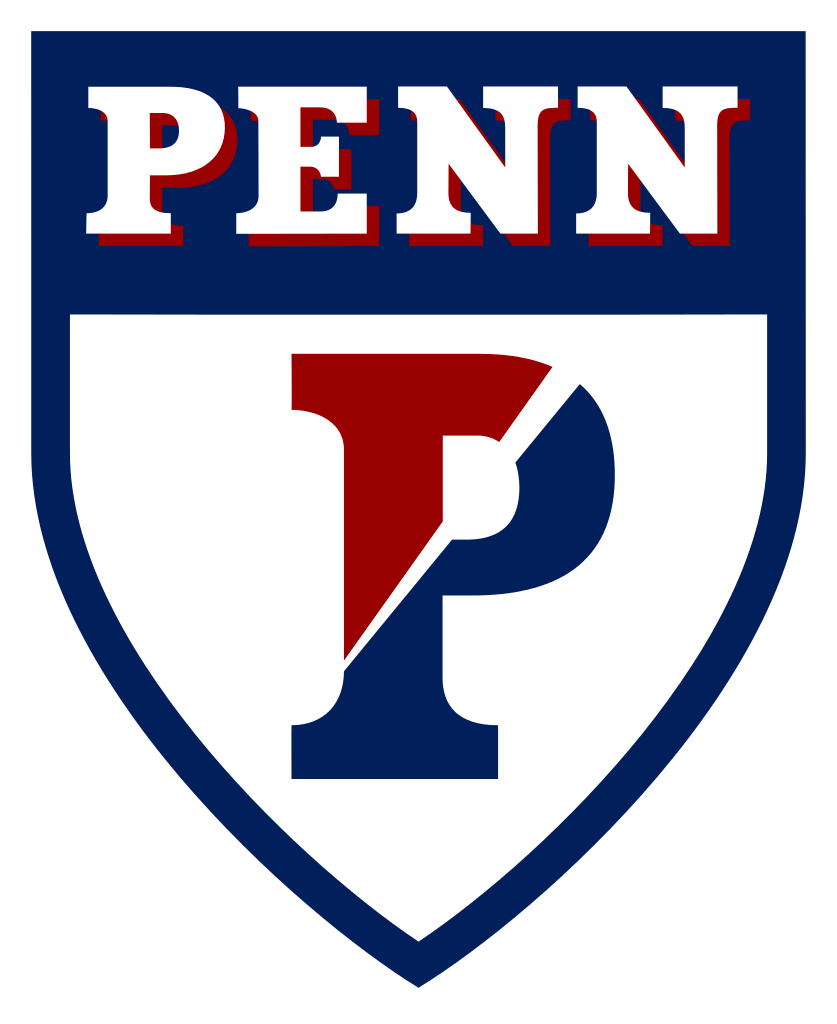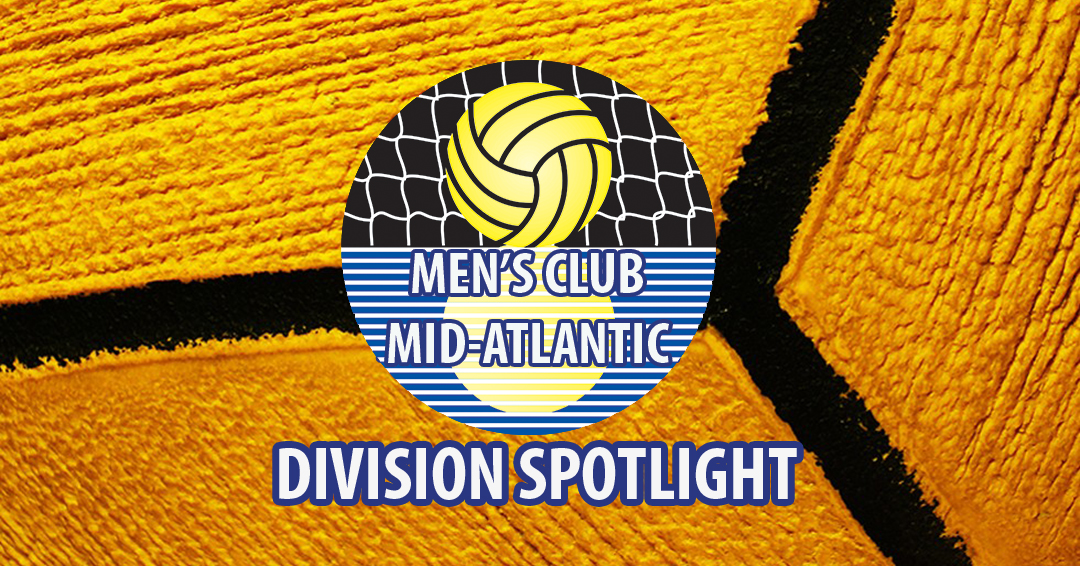BRIDGEPORT, Pa. — The Collegiate Water Polo Association (CWPA) turns its attention to the organization’s largest division in terms of membership size from the 2019 season as the 13-schools and 14 programs of the combined men’s Mid-Atlantic Division top the 10 of the Sierra Pacific Division.
Due to the size of the division, the Mid-Atlantic functions as two separate groupings with Carnegie Mellon University, Drexel University, Pennsylvania State University “A”, Pennsylvania State University “B”, the University of Pennsylvania, the University of Pittsburgh and Villanova University competing in the “A” sub-group, while Albright College, Bloomsburg University, Lehigh University, Rutgers University, Saint Joseph’s University, the University of Delaware and West Chester University of Pennsylvania comprise the “B” group. The victor of the “B” group has the right to attend and compete at the “A” Championship which determines the Mid-Atlantic Division Champion and representative for the National Collegiate Club Championship.
Similar to the majority of men’s collegiate club divisions, multiple institutions provide an opportunity for women’s athletes to compete on the men’s programs. Athletes should contact the team to find out the institutional policy on co-ed competition.
HISTORY: One of the four founding men’s collegiate club divisions from 1995 along with the New York, New England and defunct Ohio Valley Divisions, the Mid-Atlantic Division has seen five teams claim the division crown with nine-time champion Penn State (198, 205, 2009, 2012, 2014, 2015, 2016, 2017, 2019), eight-time champion Penn (1995, 1996, 1997, 2002, 2007, 2008, 2010, 2013), six-time champion Villanova (2000, 2001, 2003, 2004, 2011, 2018) and former members the University of Richmond (1999) and Slippery Rock University (2006) combining for the 25 contested titles.
Further, seven teams have reached the division title game led by Penn State and Villanova with 16 appearances, including seven runner-up marks for the Nittany Lions (2002, 2003, 2004, 2008, 2010, 2013, 2018) and 10 for the Wildcats (1998, 1999, 2006, 2007, 2009, 2012, 2015, 2016, 2017, 2019). Penn holds five second place finishes (2000, 2001, 2005, 2011, 2014) for 13 championship berths, Slippery Rock and Richmond both notched solo championship game slots. Former division member the University of Maryland placed second in 1995 and 1996, while current program West Chester took second place in 1997.
The division experienced a change in 2015 as the division membership elected to divide the Mid-Atlantic into “A” and “B” divisions to provide a more equitable playing experience for all athletes. Due to this, a number of teams compete for the “B” championship within the grouping with the right to compete at the Mid-Atlantic “A” Championship for a shot at a berth to the National Collegiate Club Championship. During the five-years of the “B” Championship, Delaware (2015, 2016), West Chester (2017, 2018) and most recently Saint Joseph’s (2019) have come out on top at the “B” Championship event, with Lehigh (2015), West Chester (2016), Saint Joseph’s (2017, 2018) and Delaware (2019) placing second.
At the National Collegiate Club Championship, the Mid-Atlantic Division is a consistent presence among the Top 10 teams, including a pair of National Championship game appearances as Penn State fell to the University of Michigan in 1998 and Villanova dropped the 2001 title tilt to California Polytechnic State University.
Mid-Atlantic Division Champion/Runner-Up
- 1995 – University of Pennsylvania / University of Maryland
- 1996 – University of Pennsylvania / University of Maryland
- 1997 – University of Pennsylvania / West Chester University
- 1998 – Penn State University / Villanova University
- 1999 – University of Richmond / Villanova University
- 2000 – Villanova University / University of Pennsylvania
- 2001 – Villanova University / University of Pennsylvania
- 2002 – University of Pennsylvania / Penn State University
- 2003 – Villanova University / Penn State University
- 2004 – Villanova University / Penn State University
- 2005 – Penn State University / University of Pennsylvania
- 2006 – Slippery Rock University / Villanova University
- 2007 – University of Pennsylvania / Villanova University
- 2008 – University of Pennsylvania / Penn State University
- 2009 – Penn State University / Villanova University
- 2010 – University of Pennsylvania / Penn State University
- 2011 – Villanova University / University of Pennsylvania
- 2012 – Penn State University / Villanova University
- 2013 – University of Pennsylvania / Penn State University
- 2014 – Penn State University / University of Pennsylvania
- 2015 – Penn State University / Villanova University
- 2016 – Penn State University / Villanova University
- 2017 – Penn State University / Villanova University
- 2018 – Villanova University / Penn State University
- 2019 – Penn State University / Villanova University
Mid-Atlantic Division “B” Champion/Runner-Up
- 2015 – University of Delaware / Lehigh University
- 2016 – University of Delaware / West Chester University
- 2017 – West Chester University / Saint Joseph’s University
- 2018 – West Chester University / Saint Joseph’s University
- 2019 – Saint Joseph’s University / University of Delaware
National Collegiate Club Champion/Runner-Up
- 1998 – University of Michigan / Penn State University
- 2001 – California Polytechnic State University / Villanova University
THE TEAMS: Spanning a width of 360 miles from Rutgers in the East to Pittsburgh and Carnegie Mellon in the West, the Mid-Atlantic Division is comprised of schools from three states (Delaware, New Jersey, Pennsylvania) divided based on playing ability.
 Albright College
Albright College
Albright College competed as a co-ed exhibition team in the Mid-Atlantic “B” Division during the 2019 season as the Lions build up their program.
Founded in 1856 in Reading, Pa. at the base of Mount Penn, Albright offers Bachelor of Arts and Bachelor of Science degrees, as well as a Master of Arts and Master of Science degrees in education. The college also offers accelerated degrees with 700 of the institution’s 1,800 days students enrolled in the program.
Albright offers liberal arts and pre-professional programs. It created one of the first undergraduate psychobiology programs in the nation in the 1960s. The college’s liberal arts curriculum has an interdisciplinary focus that allows students to create an individualized education. Fully half of Albright students have concentrations that combine two or three fields of learning.
Three Albright programs that have received national attention in the past decade are fashion, theatre and music. Albright was named one of the nation’s top private fashion merchandising schools in 2015, 2016 and 2017 by Fashion-Schools.org. The theatre program has been honored by the Kennedy Center American College Theater Festival consistently for the past 12 years. The Music Industry Studies program at Albright has been recognized as one of the top 35 music business programs in North America by Billboard magazine.
For more information on the Albright co-ed/men’s collegiate club team, contact Sarajean Reinert (sarajean.reinert001@albright.edu).
Bloomsburg University
Similar to Albright College, the Huskies of Bloomsburg University competed as a co-ed exhibition team in the Mid-Atlantic “B” Division during the 2019 season.
Located in Bloomsburg, Pa., and part of the Pennsylvania State System of Higher Education along with West Chester University of Pennsylvania, Bloomsburg was founded in 1839 and currently enrolls 9,950 students (9,201 undergraduate / 741 graduate) with an acceptance rate of 68%.
The school offers 57 undergraduate majors, 66 undergraduate minors and 21 graduate programs with more than 250 student clubs and organizations.
For more information on the Bloomsburg co-ed/men’s collegiate club team, contact either Austin Kerley (ack80257@huskies.bloomu.edu) or the team’s general account (Bloomwaterpolo@gmail.com).
- Facebook (@BUhuskiesh2o)
- Website (http://stclubsports.wixsite.com/bloomsburgclubsports/club-water-polo)
 Carnegie Mellon University
Carnegie Mellon University
Carnegie Mellon University was founded in 1900 by Andrew Carnegie in Pittsburgh, Pa., as the Carnegie Technical Schools, the university became the Carnegie Institute of Technology in 1912 and began granting four-year degrees. In 1967, the Carnegie Institute of Technology merged with the Mellon Institute of Industrial Research to form Carnegie Mellon University. With its main campus located three miles from Downtown Pittsburgh, Carnegie Mellon has grown into an international university with over a dozen degree-granting locations in six continents, including campuses in Qatar and Silicon Valley, and more than 20 research partnerships. The university has seven colleges and independent schools, all of which offer interdisciplinary programs: the College of Engineering, College of Fine Arts, Dietrich College of Humanities and Social Sciences, Mellon College of Science, Tepper School of Business, H. John Heinz III College of Information Systems and Public Policy, and the School of Computer Science.
Among the leading centers of scientific research, Carnegie Mellon counts 14,799 students from 117 countries, over 109,000 living alumni, and over 1,400 faculty members. Past and present faculty and alumni include 20 Nobel Prize laureates, 13 Turing Award winners, 23 Members of the American Academy of Arts and Sciences, 22 Fellows of the American Association for the Advancement of Science, 79 Members of the National Academies, 124 Emmy Award winners, 47 Tony Award laureates and 10 Academy Award winners.
The Tartans are one of two men’s collegiate club teams in Pittsburgh with the campus bordered to the west by the campus “A” Division rival the University of Pittsburgh.
In the 1990s and into the 2000s, Carnegie Mellon solidified its status among American universities, consistently ranking in the top 25 in the national U.S. News & World Report rankings, and in the top 60 (ranking 55th in 2013) among universities worldwide. Carnegie Mellon is distinct in its interdisciplinary approach to research and education. Through the establishment of programs and centers that are outside the limitations of departments or colleges, the university has established leadership in fields such as computational finance, information systems, cognitive sciences, management, arts management, product design, behavioral economics, energy science and economics, human-computer interaction, entertainment technology, and decision science.
For the class of 2023 (enrolling fall 2019), Carnegie Mellon received 27,634 applications and accepted 4,265 (15.4%), with 1,585 enrolling. The acceptance rates of the individual colleges and programs ranged from Carnegie Mellon School of Architecture’s 30% to Carnegie Mellon School of Drama’s 3%. The largest college, in terms of the class of 2023 enrollment, is the College of Engineering with 407 students, followed by the Dietrich College of Humanities & Social Sciences with 277, and the School of Computer Science with 218. The smallest college is the School of Design, with 34. Overall, in 2019 Carnegie Mellon enrolled students from 48 U.S. states and more than 70 countries.
For more information on the Carnegie Mellon co-ed/men’s collegiate club team, contact either Jeremy Tinucci (jtinucci@andrew.cmu.edu) or Kelby Kramer (kbkramer@andrew.cmu.edu).
- Website (http://www.cmuwaterpolo.org)
Drexel University 
Founded in 2007, the Drexel University collegiate club team competes in the Mid-Atlantic Division “A” against Carnegie Mellon University, Pennsylvania State University and the University of Pittsburgh – along with fellow Philadelphia metro area programs Villanova University and neighboring the University of Pennsylvania.
A private institution, Drexel was founded in Philadelphia, Pa., by Anthony J. Drexel in 1891 as the Drexel Institute of Art, Science, and Industry prior to changing its name to the Drexel Institute of Technology in 1936 and Drexel University in 1970.
More than 26,000 students are enrolled in over 70 undergraduate programs and more than 100 master’s, doctoral, and professional programs at the university. Drexel’s cooperative education program (co-op) is a prominent aspect of the school’s degree programs, offering students the opportunity to gain up to 18 months of paid, full-time work experience in a field relevant to their undergraduate major or graduate degree program prior to graduation.
For more information on the Drexel co-ed/men’s collegiate club team, contact either Jonathan Templin (jmt383@drexel.edu) or the team’s general account (duwaterpolo@gmail.com)
- Facebook (@DrexelWaterPolo)
- Website (https://dragonlink.drexel.edu/organization/drexelwaterpolo)
 Lehigh University
Lehigh University
The Lehigh University club team is a co-ed organization that welcomes players from all skill levels. Many of the team’s players learned the game their freshmen year and were taught by more experienced teammates.
Internally coached team with the Club President typically running practices – but also drawing skills and drills from all experienced members – the Mountain Hawks have players from across the country including Pennsylvania, New Jersey, New York, Maryland, Georgia, Illinois, California, Texas, Florida and Hawaii.
“We’re a rag-tag bunch of devoted teammates with a common shared love for water polo,” states Janelle Laros. “We have a very strong team camaraderie and a fun practice atmosphere. Every player is recognized for their commitment, hard work and development while a part of our team. Over the years, our players have created lasting friendships that transcend the sport and we often socialize as a team outside of the pool.”
A member of the Mid-Atlantic “B” Division, Lehigh has held their own against the ranks of Saint Joseph’s University, West Chester University of Pennsylvania and the University of Delaware over the years – including a runner-up finish in the inaugural “B” Championship in 2015.
“We love to play against West Chester and St. Joseph’s,” adds Laros. “Many of us have gotten to know some of their players over the years and nothing beats some friendly competition.”
“As a team, we aim to develop our program by working with our school to obtain better resources and facilities. As our team grows, we strive towards understanding the process of growing the program at our school and establishing our place in our league. Our biggest goal for our program is to gain the resources necessary to host a game during our season. Many of our close friends have never seen us play before because all of our games are an hour or more away. We would like to showcase the hard work and skill of our devoted players in our school’s community to help build our program further.”
Established in 1865 by businessman Asa Packer in Bethlehem, Pa., Lehigh has 5,047 undergraduate students and 1,802 graduate students in four colleges: the P.C. Rossin College of Engineering and Applied Science, the College of Arts and Sciences, the College of Business and Economics, and the College of Education. The College of Arts and Sciences is the largest, with 35% of the university’s students. The university offers the Bachelor of Arts, Bachelor of Science, Master of Arts, Master of Science, Master of Business Administration, Master of Engineering, Master of Education and Doctor of Philosophy degrees. For the Class of 2022 (enrolled fall 2018), Lehigh received 15,623 applications and accepted 3,418 (22%).
For more information on the Lehigh co-ed/men’s collegiate club team, contact either Janelle Laros (jjl221@lehigh.edu) or the team’s general account (lehighwaterpolo@gmail.com).
- Instagram (@LehighWaterPolo)
Pennsylvania State University 
A nine-time Mid-Atlantic Division Champion (1998, 2005, 2009, 2012, 2014, 2015, 2016, 2017, 2019), seven-time runner-up (2002, 2003, 2004, 2008, 2010, 2013, 2018) and past National Collegiate Club Championship runner-up (1998), the Nittany Lions of reigning Mid-Atlantic “A” titlist Pennsylvania State University rate as the preeminent power in the division with eight consecutive title game appearances (the longest streak in division history).
Penn State fielded two men’s teams in the “A” Division during the 2019 season with the “A” and “B” squads placing First and Fifth, respectively, at the eighth-team division championship tournament.
During the history of the division, Penn State’s primary competition in the Mid-Atlantic Division has remain consistent with the University of Pennsylvania, Villanova University and PSU trading regular season crowns and clashing with the Nittany Lions for the title six (2002 2005, 2008, 2010, 2013, 2014) and 10 (1998, 2003, 2004, 2009, 2012, 2015, 2016, 2017, 2018, 2019) times, respectively.
Founded in 1855 as the Farmers’ High School of Pennsylvania, Penn State is among the largest schools in the world. Annual enrollment at the University Park campus in State College, Pa., totals more than 46,800 graduate and undergraduate students. Further, the school has the world’s largest dues-paying alumni association.
One of a select group of schools in the world to have two law schools – Penn State Law, on the school’s University Park campus, and Dickinson Law, located in Carlisle, 90 miles south of State College – the school also has a College of Medicine is located in Hershey. The university offers more than 160 majors and has multiple extracurricular activities.
Overall, the school boasts an undergraduate acceptance rate of 50%. During the fall 2018 semester, 40,363 undergraduate students and 5,907 graduate students were enrolled at University Park. Of those, 46.5 percent were female and 42.4 percent were non-Pennsylvania residents.
For more information on the Penn State men’s collegiate club teams, contact Michael Dougherty (mad6250@psu.edu).
- Facebook (@Penn-State-Mens-Water-Polo-126954984069210/)
- Twitter (@PSUPolo)
- Website (https://pennstatewaterpolo.weebly.com/)
 Rutgers University
Rutgers University
Rutgers University is among the newest collegiate club teams in the Collegiate Water Polo Association (CWPA) as the Scarlet Knights commenced competition in the Mid-Atlantic “B” Division during the 2019 season.
The only New Jersey institution competing in either the men’s or women’s collegiate club ranks – and joining the varsity Princeton University men’s and women’s teams as the lone collegiate water polo programs in the Garden State – Rutgers earned a regular season runner-up finish in the Mid-Atlantic “B” Division prior to notching a Third Place mark as the group championship.
Composed of undergraduates, graduate students, professors, the Rutgers team offers individuals who enjoyed high school swimming an opportunity to learn, play and excel in water polo.
The largest institution of higher education in New Jersey and located in New Brunswick, N,J., Rutgers was originally chartered as Queen’s College on November 10, 1766. It is the eighth-oldest college in the United States and one of the nine colonial colleges chartered before the American Revolution. The college was renamed Rutgers College in 1825 in honor of Colonel Henry Rutgers, a Revolutionary War hero. For most of its existence, Rutgers was a private liberal arts college but it evolved into a coeducational public research university after being designated “The State University of New Jersey” by the New Jersey Legislature in laws enacted in 1945 and 1956.
The university has 19 undergraduate, graduate and professional schools, including the School of Arts and Sciences, the School of Communication and Information, the Edward J. Bloustein School of Planning and Public Policy, the School of Engineering, the School of Environmental and Biological Sciences, the Ernest Mario School of Pharmacy, the Graduate School, the Graduate School of Applied and Professional Psychology, the Graduate School of Education, the School of Management and Labor Relations, Mason Gross School of the Arts, the College of Nursing, the Rutgers Business School and the School of Social Work. Approximately 40,430 students (about 31,590 undergraduates and 8,840 graduate students) are currently enrolled at the New Brunswick campus.
For the Class of 2022 (enrolling Fall 2018), Rutgers received 41,348 applications and accepted 24,854 (60.1%). The number enrolling was 7,036; the yield rate (the percentage of accepted students who enroll) was 28.3%.
For more information on the Rutgers co-ed/men’s collegiate club team, contact either Sarah Cain (skc123@scarletmail.rutgers.edu), Nate Schluns (njs176@scarletmail.rutgers.edu) or head coach Dan Reyes (daniel.a.reyes@rutgers.edu).
- Website (https://rutgers.campuslabs.com/engage/organization/WaterPoloClub)
Saint Joseph’s University 
The 2019 Mid-Atlantic “B” Division Champion and a sixth place finisher at the eight-time “A” Championship, the Hawks of Saint Joseph’s University previously claimed back-to-back runner-up placements in the “B” Division in 2017 and 2018.
Located in both Philadelphia and Lower Merion, Pa., Saint Josephs was founded by the Society of Jesus in 1851 and is the seventh oldest Jesuit university in the United States.
Saint Joseph’s University educates over 9,200 undergraduate, graduate, and doctoral students each year through the Erivan K. Haub School of Business, the College of Arts and Sciences, the Program of Professional & Liberal Studies, and the Haub Degree Completion Program. The University offers over 60 undergraduate majors, 53 graduate programs, 28 study-abroad programs, 12 special-study options, a co-op program, a joint degree program with Thomas Jefferson University, and an Ed.D. in Educational Leadership. About 51% of undergraduates are enrolled in the College of Arts and Sciences while 49% are enrolled in the Haub School of Business.
Saint Joseph’s is within 15 miles of a number of other schools including: La Salle University, Harcum College, Rosemont College, Philadelphia College of Osteopathic Medicine, University of Pennsylvania, Drexel University, Temple University, Swarthmore College, Bryn Mawr College, Haverford College, Philadelphia University, Eastern University, Cabrini College, and Villanova University – creating playing opportunities versus Mid-Atlantic “A” programs Drexel, Penn and Villanova along with the varsity team at La Salle.
For more information on the Saint Joseph’s co-ed/men’s collegiate club team, contact either Tyler Daniskas (td701794@sju.edu) or the team’s general account (hawkswaterpolo@gmail.com).
 University of Delaware
University of Delaware
Founded in 2005 by Millersville University of Pennsylvania transfer Craig Eckbold and the only collegiate club water polo program in the state of Delaware, the University of Delaware competes in the Mid-Atlantic “B” Division.
The 2015 and 2016 Mid-Atlantic “B” Champion with title game victories over Lehigh University and West Chester University of Pennsylvania, Delaware most recently finished as the 2019 runner-up behind Saint Joseph’s University.
Located in Newark, Delaware, and the largest university in Delaware, the school offers three associate’s programs, 148 bachelor’s programs, 121 master’s programs (with 13 joint degrees) and 55 doctoral programs across its eight colleges. Enrolling approximately 18,500 undergraduate and 4,500 graduate students, the school is unique for being one of only four schools in North America with a major in art conservation.
The school’s location is within easy drives of Philadelphia and Baltimore as playing opportunities against West Chester, Drexel University, Villanova University, the University of Pennsylvania, Saint Joseph’s and Lehigh University – among others – are within 90 minutes.
For more information on the Delaware co-ed/men’s collegiate club team, contact either Eric Sawka (ecsawka@udel.edu) or Catherine Johnson (catej@udel.edu).
- Facebook (@DelawareWP)
- Website (https://rec.bluehens.com/sports/2018/6/6/water-polo.aspx)
University of Pennsylvania
An eight-time Mid-Atlantic Division Champion (1995, 1996, 1997, 2002, 2007, 2008, 2010, 2013) and five-time runner-up (2000, 2001, 2005, 2011, 2014), the Quakers of the University of Pennsylvania are no strangers to success in men’s collegiate club water polo.
Facing perennial foes Villanova University and Pennsylvania State University with a combined 10 title game clashes against the Wildcats (2000, 2001, 2007, 2011) and Nittany Lions (2002, 2005, 2008, 2010, 2013, 2014), Penn is consistently among the Top Four teams in the Mid-Atlantic “A” Division on an annual basis.
Due to its location in Philadelphia, Pa., and close proximity to fellow Mid-Atlantic Division institutions Drexel University, Villanova, Saint Joseph’s University, the University of Delaware, Albright College and West Chester University of Pennsylvania, Penn rates as a center of water polo excellence, an Ivy League institution and among the leading institutions for research and business.
Founded in 1740 and one of the nine colonial colleges chartered prior to the United States Declaration of Independence, the school was unique from its formation. Benjamin Franklin, Penn’s founder and first president, advocated an educational program that trained leaders in commerce, government, and public service, similar to a modern liberal arts curriculum.
Penn has four undergraduate schools as well as twelve graduate and professional schools. Among its graduate and professional schools are the first school of medicine in North America (Perelman School of Medicine, 1765) and the first collegiate business school (Wharton School, 1881).
As of 2018, distinguished alumni include 14 heads of state, 64 billionaires, three U.S. Supreme Court justices, 33 U.S. Senators, 44 U.S. Governors, 159 members of the U.S. House of Representatives, eight signers of the U.S. Declaration of Independence, 12 signers of the U.S. Constitution, 24 members of the Continental Congress, and two presidents of the United States, including the current U.S. President, Donald Trump. Other notable alumni include 29 Rhodes Scholars, 15 Marshall Scholars, 16 Pulitzer Prize winners, and 48 Fulbright Scholars. As of October 2019, 36 Nobel laureates, 169 Guggenheim Fellows, 80 members of the American Academy of Arts and Sciences, and many Fortune 500 CEOs have been affiliated with the university. Further, Penn has the highest number of undergraduate alumni billionaires of any school in the United States.
The College of Arts and Sciences is the undergraduate division of the School of Arts and Sciences. The School of Arts and Sciences also contains the Graduate Division and the College of Liberal and Professional Studies, which is home to the Fels Institute of Government, the master’s programs in Organizational Dynamics, and the Environmental Studies (MES) program. Wharton is the business school of the University of Pennsylvania. Other schools with undergraduate programs include the School of Nursing and the School of Engineering and Applied Science (SEAS).
Penn has a strong focus on interdisciplinary learning and research. It offers double degree programs, unique majors, and academic flexibility. Penn’s “One University” policy allows undergraduates access to courses at all of Penn’s undergraduate and graduate schools except the medical, veterinary and dental schools. Undergraduates at Penn may also take courses at Bryn Mawr College, Haverford College and Swarthmore College under a reciprocal agreement known as the Quaker Consortium.
The Princeton Review ranks Penn as the sixth most selective school in the United States. For the Class of 2024, entering in the fall of 2020, the University received 42,205 applications and admitted 8.07% of the applicants. At the graduate level, based on admission statistics from U.S. News & World Report, Penn’s most selective programs include its law school, the health care schools (medicine, dental medicine, nursing, Social Work and veterinary) and its business school.
For more information on the Penn men’s collegiate club team, contact Matteo Brunel (menspennwaterpolo@gmail.com).
- Facebook (@UPennMensWaterPolo)
- Website (https://pennwaterpolo.com/)
 University of Pittsburgh
University of Pittsburgh
The host of the 2019 Men’s National Collegiate Club Championship, the University of Pittsburgh competes in the Mid-Atlantic “A” Division.
One of four Mid-Atlantic Division teams to compete at the National Collegiate Club Championship joining the University of Pennsylvania, Pennsylvania State University and Villanova University, the Panthers are the western most team in the division – by feet. The Pitt and Carnegie Mellon University campuses abut each other as Pittsburgh is within walking distance of its Steel City division rival.
Founded in 1787 as the Pittsburgh Academy, renamed in 1819 as the Western University of Pennsylvania and assuming its current moniker as the University of Pittsburgh in 1908, the university is composed of 17 undergraduate and graduate schools and colleges at its urban Pittsburgh campus, home to the university’s central administration and 28,391 undergraduate, graduate and professional students. Pitt is the third-largest recipient of federally sponsored health research funding among U.S. universities in 2018 and it is a major recipient of research funding from the National Institutes of Health. The school ws ranked among the top research universities in the United States in both domestic and international rankings and it has been listed as a “best value” in higher education by several publications.
Undergraduate degrees can be earned as Bachelor of Arts, Bachelor of Science, and Bachelor of Philosophy. Along with providing certificate programs, graduate level master’s, professional, and doctoral degrees are also awarded. Pitt has also initiated a University-wide Outside the Classroom Curriculum (OCC) that includes a structured series of extracurricular programs and experiences designed to complement students’ academic studies and help develop personal attributes and professional skills.
For more information on the Pitt men’s collegiate club team, contact Nicholas Calvaresi (pittclubwaterpolo@gmail.com).
- Twitter (@pittmenspolo)
- Website (https://pitt2.campuslabs.com/engage/organization/menswaterpolo)
Villanova University
The six-time Mid-Atlantic Division Champion (2000, 2001, 2003, 2004, 2011, 2018), 10-time runner-up (1998, 1999, 2006, 2007, 2009, 2012, 2015, 2016, 2017, 2019) Wildcats of Villanova University stand as one of the most successful programs in the history of the division.
Led by head coach Dan Sharadin during the team’s entire tenure as a collegiate club program, the majority of the team is comprised of rising seniors who came in together freshman year with the goal of maintaining the level of success achieved by their predecessors.
“One of the great things about playing at Villanova is that we have a small group with great chemistry and comraderie, which makes us very formidable.” says Conor Farrell, one of the team’s seniors this Fall. “To fill out our team, we are looking for anyone interested in joining the club. The only requirement is the ability to swim. We welcome everyone from beginners to those that played in high school.”
Villanova, which has appeared in the five Mid-Atlantic “A” Championship title games with a victory in 2018 and runner-up marks in 2015, 2016, 2017 and 2019, competes year-round with the college season running from September to November and Main Line League play – against local club teams and masters teams in the Philadelphia metro region – spanning from January through March.
The year-round competition provides games for all players regardless of experience. The team practices four days per week in the Fall and two days per week in the Spring with all practices overseen and guided by a coach.
One of three active teams in the Mid-Atlantic Division to claim the championship and a berth to the National Collegiate Club Championship, the Wildcats’ biggest rivals are the University of Pittsburgh, the University of Pennsylvania and Pennsylvania State University.
“We always have great games against these teams and they all have a lot of talented players. Typically one of them is winning our division, which makes every time we face them a big game,” mentions Sharadin.
In fact, Villanova has maintained a championship caliber rivalry with Penn State and Penn by battling the duo during the regular season and normally clashing once more at the division title tournament. Against the Nittany Lions, Villanova has met Penn State for the division crown 10 times (1998, 2003, 2004, 2009, 2012, 2015, 2016, 2017, 2018, 2019) with three wins (2003, 2004, 2018) in the showdowns. Taking on the Quakers of Penn four times (2000, 2001, 2007, 2011) in the division’s title tilt, the Wildcats hold a 3-1 record with wins in 2000, 2001 and 2011.
For Villanova, the expectation is for the season to continue onto the National Collegiate Club Championship.
“A lot can happen along the way and you need to finish strong to get there,” adds Sharadin.
For example, Villanova claimed the Mid-Atlantic “A” regular season title and championship No. 1 seed in 2019 thanks to a 10-9 defeat of Penn State “A”, but missed out on making the National Collegiate Club Championship hosted by Pittsburgh due to a 9-4 title game loss to the Nittany Lions in State College during the Mid-Atlantic “A” Division Championship.
The drive to again reach the National Collegiate Club Championship in 2020 will rely on a core group of seniors: Greg King, Will Marvin, Connor Farrell, Matt Hoban, and goalie James Terhune.
Outside the pool, Villanova men’s water polo athletes are involved in a number of activities – both on campus and in other mediums. For example, Greg King runs https://thesidelineobserver.com/, a site covering everything from politics to sports. In addition, the school operates the largest student-run Special Olympics in the world.
Named after Saint Thomas of Villanova and founded in 1842 in Radnor Township – a suburb of Philadelphia – Villanova is the oldest Catholic university in Pennsylvania and the only Augustinian university in the United States.
For Fall 2019, Villanova received 22,880 freshmen applications; 6,338 were admitted (27.7%) for a class of 1,675. The University offers three ways to apply: Early Decision (binding), Early Action and Regular Decision.
The school is known for its Naval Reserve Officer Training program (NROTC) as Villanova is part of the Philadelphia NROTC Consortium with Penn, Drexel University and Temple University.
Since its inception in the summer of 1946, the NROTC unit on campus has produced 25 Admirals and Generals in the United States Navy and Marine Corps. At one point, there had only been two four-star generals in the U.S. Marine Corps, one of them the Commandant of the Marine Corps, and they had both been graduates of Villanova NROTC. In 2004, the commanders of both U.S. Naval Forces Atlanticand U.S. Naval Forces Pacific were Villanova NROTC graduates.
For more information on the Villanova men’s club team, contact Dan Sharadin (sharadin@americanwaterpolo.org).
- Facebook (@VUMWP)
- Website (https://www1.villanova.edu/villanova/recreation/clubsports/villanova-men-s-club-wa)
 West Chester University of Pennsylvania
West Chester University of Pennsylvania
The 1997 Mid-Atlantic Division Championship runner-up, West Chester University of Pennsylvania is located approximately 35 miles outside Philadelphia, Pa., in the town of West Chester.
The program has previously claimed the Mid-Atlantic “B” Championship twice (2017, 2018) and placed second in 2016 as the Rams are a consistent presence in the upper echelon of the division standings.
Founded in 1871, the university offers Bachelor of Arts, Bachelor of Science, Bachelor of Fine Arts and Bachelor of Music degrees on the undergraduate level to a student-body comprised of 14,400 undergraduates along with approximately 2,600 graduate students. Paraprofessional studies are available in law, medicine and theology. In cooperation with Pennsylvania State University, Columbia University and Philadelphia University, WCU offers a 3–2 dual-degree program combining liberal arts, physics and engineering. Also available are early admission assurance programs with Pennsylvania State University College of Medicine, Philadelphia College of Osteopathic Medicine and Temple University School of Medicine. The university provides special admission opportunities and scholarships to the Widener School of Law–Harrisburg Campus. Certification programs are available in health and physical education, teacher certification, driver education and safe living, and outdoor recreation. Interdisciplinary areas of study with transcript recognition include American studies, ethnic studies, Latin American studies, Russian studies, peace and conflict studies, women’s studies, and linguistics. At the graduate level, West Chester University of Pennsylvania offers master’s (M.A., M.B.A., M.Ed., M.M., M.P.A., M.P.H., M.S., M.S.W., M.S.N., M.U.R.P.) and doctoral (DPA, DNP, Ed.D., Psy.D.) degrees.
For more information on the West Chester men’s collegiate club team, contact Jason Doyle (wcuwaterpolo@gmail.com).
- Instagram (@wcu_waterpolo)
- Twitter (@WCU_WaterPolo)
- Website (https://wcuwaterpolo.wixsite.com/wcuwp)

